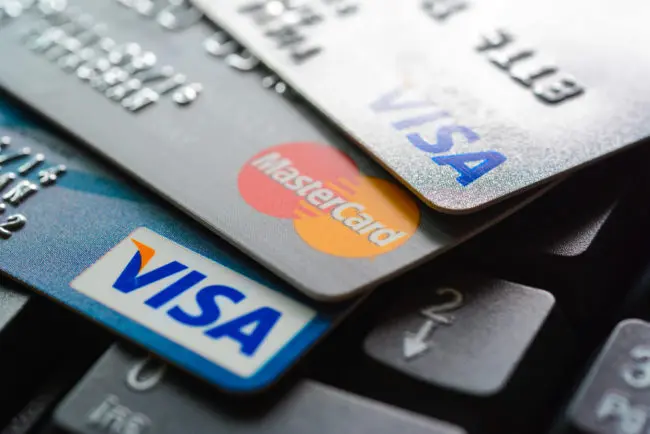If you’ve incurred a steep credit card balance or overdue loans over time, there’s a good chance you have less than stellar credit.
If so, you might be struggling to get approved for things like new credit cards.
While it’s possible to live with bad credit, you’ll find yourself at a disadvantage when you take out a mortgage or when you apply for car finance. Because of your poor credit standing, you’ll be paying for a higher interest rate.
So, if you want to avoid paying higher interest rates and get favourable terms, you’ll need to improve your credit as soon as possible. Before you get tempted to ask someone else to fix your bad credit, consider looking for strategies that can help in your credit repair efforts.
The reality is, repairing bad credit is something you can do on your own. In fact, there is nothing a credit repair company can do that you can’t do yourself. With a little bit of insight and some patience, there are steps you can take to rebuild your credit even without paying for the services of a professional or a business establishment.
Save time and money by trying these simple ways to repair your bad credit on your own:
- Check your latest credit report. Knowing what needs to get fixed is crucial. It’ll be easier for you to come up with an appropriate strategy if you know the state of your credit report. You don’t want to spend a lot of time and effort in coming up with a plan to repair your credit and then find out that your plan isn’t enough for you to achieve your goals, right?
So, get the most recent copy of your credit report. It’s also a good idea to get as much information about your credit score as you can. Try to visit sites like Equifax.co.uk or Creditreport.co.uk to request a free credit report. Once you’ve acquired a copy, read it thoroughly and see which items have negatively affected your credit score and ask questions if certain areas are unclear or shady to you. In an attempt to repair your credit score, always remember that knowledge is power. So you should equip yourself with the necessary information before you implement any strategy.
Look for errors in your credit reports
If you happen to identify any possible errors in your credit report, you can try to dispute them. While these errors don’t happen very often, it’s still worthwhile to review items like major purchases, outstanding debts, among others. Since you are responsible for your expenses, you should easily be able to determine if there are errors in your credit score.
So, when you see anything questionable, remember to highlight it in your report. The next step is to collect any information to support your claims, such as bank account statements, and make extra copies of them. Gather all the necessary documents for your dispute and make sure to provide the original copy (if possible). The more documents you can show to support your claims, the higher the chances you’ll have for your credit score to be corrected. It is important to have proof when you get in touch with the credit bureaus.
Try to negotiate a payment plan
If you’ve been struggling to make payments in the past, you can try to reach out with your creditors and work out a payment plan, so you can catch up on any missed payments. Let your creditors know about your situation and do your best to negotiate your terms with them. Depending on the size of the business, some creditors would allow lenders to have flexible payment terms just as long as they can provide a collateral to the agreement. Remember, your payment history plays a huge role in determining your credit score.
Every time you incur a late payment, this will damage your credit score. To avoid missed payments, make sure you pay any bills like the internet, utilities, rent and such on time. One effective way to do this is by having these bills automatically deducted from your bank account. Since your expenses will be deducted automatically from your bank, you won’t have to worry about spending it on other things and end up with late payments.
Start paying down your credit card debts
If you have outstanding balances, make sure you pay them down, little by little, until they are gone. Do not go over your credit limit, which means that you should drastically change your spending habits and stick to a realistic budget every month. This way, you won’t max out your credit cards.
Another factor that may negatively impact your credit score is closing credit cards you’ve had for a long time, especially when the account still has a balance. So, be very careful when deciding to close them. Make sure that all of your debts are paid so your credit score won’t be adversely affected.
Avoid applying for new credit
No matter how tempted you are, do not apply for a new credit card as this can hurt your credit score. Get your credit in order before applying for new lines of credit. Choosing to pay your existing debts with another credit card can result in a lifelong of debts and can significantly affect your credit score.
While you can’t expect to repair your credit overnight, if you get a good sense of where you stand financially, you can focus on reducing your credit card debts, making sure you pay every bill on time and limit your spending.
So, no matter how long it takes to rebuild your credit, don’t give up. When you develop good financial habits over time, you’ll benefit from having a healthier credit score, especially when you decide to make big-ticket purchases, like a new house or a new car.
You can confidently approach lenders knowing that you won’t be rejected because of poor credit.


